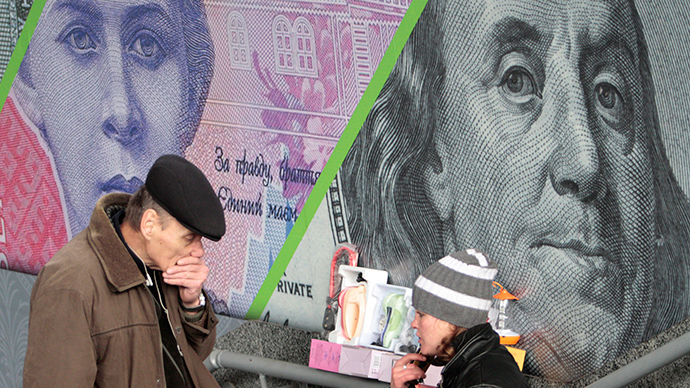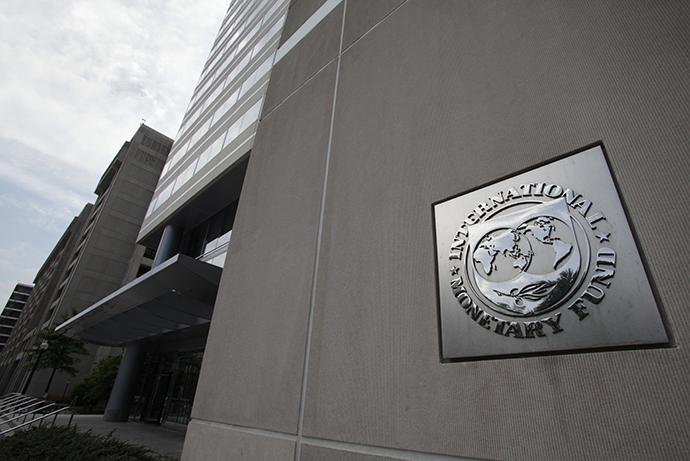‘Sanctions on Russia are indirect sanctions on the EU’
페이지 정보
작성자 최고관리자 작성일14-03-28 22:10 조회4,883회 댓글0건관련링크
본문
‘Sanctions on Russia are indirect sanctions
on the EU’
Michel Chossudovsky, RT (Russia Today) | March
27, 2014

European countries are toeing the US line on sanctions against Russia, but
when it comes to the economy they say they don’t want those sanctions, Michel
Chossudovsky, Director of the Center for Research on Globalization, told RT.
RT: Obama said that the West is united against Russia, and that Russia could
face further isolation. Angela Merkel, though, wants to deescalate the
situation. The Czech parliament also voted against more sanctions. Why aren't
they all on the same page?
Michael Chossudovsky: This is a double-edged sword because the EU imports more than one-third
of its gas and fuel from Russia. And consequently, if there are sanctions
imposed on Russia, this will immediately backlash. In effect these are indirect
sanctions on the EU, because the EU has no immediate alternative to those
purchases of fuel and natural gas from the Russian Federation. The pressure for
the imposition of sanctions is emanating from Washington – and at the political
level the governments of the European countries may in fact toe the line at the
diplomatic level. But when it comes to the economic and trade the answer is no,
we don't want those sanctions, because immediately it is going to penalize not
the Russian people, but the people of the EU.
RT: What about the existing EU and US sanctions against certain Russian
individuals? What economic effect do you think they could have?
MC: The sanctions are symbolic and in effect they are very arrogant in terms
of conduct of diplomacy to target individuals within the Russian government –
you can’t travel, your assets are frozen and so on. It is more of harassment.
It is not something which will impede the Russian state, a large country with a
big economy to take action in that regard. It simply indicates the fact that
Washington is somewhat desperate to find a solution. It cannot implement
meaningful sanctions as it would do with poor countries, maybe in Africa or
Latin America, or maybe in Southeast Asia in the case of Myanmar. They can’t do
it with Russia or China, because it simply does not work. Particularly we have
to bear in mind that the Western economies are very fragile, because on one
hand they depend on imports of energy. The West, taken together, the US, Canada
and so on, their reserves of oil and natural gas are very small in relation to
those of the Middle East and other energy-producing economies like Russia. Now
take the case of China. China is a major supplier of consumer goods to most of
the Western countries. Made in China is everywhere in the shopping marts and
department stores. And imagine if the sanctions are imposed on China for one
reason or another. Well, China will say, no more Made in China commodities for
the USA, which would immediately create havoc, at least in the immediate
future, would create havoc in the supply of consumer goods to millions of
people.
RT: Russia's no longer welcome to be a part of the G8. What does Moscow stand
to lose from being excluded from that partnership?
MC: The G8 goes back to the days of Boris Yeltsin. The G7 was never a
decision-making body. It was really a gathering of seven heads of government
and it was an opportunity to socialize. Some discussions were taking place but
most of the communiqués were drafted in advance. And then Boris Yeltsin really
asked the G7, “Well, I would also like to come,” and then they created the G8.
In fact what they had was the G7 + 1 initially, and then it eventually evolved
toward the G8. In early days of the G8, Russia did not participate in the
entire event. It came on the last two days, so to speak. I don’t see this as a
meaningful gesture. I think it is idiotic from a diplomatic point of view,
because the G7/G8 offers an environment which is relaxed, where the European
and Canadian heads of state could have established a dialogue with Russia, with
president Putin at that venue with a view of resolving certain dimensions of
this crisis. But they have chosen to cut the diplomatic dialogue and they are
saying, “We don't want to talk to you anymore.” The G7 was a place where you
talk because nothing is decided in the G7/G8. It is an informal body of heads
of government.

The International Monetary Fund (IMF) headquarters building is seen in Washington, DC (AFP Photo)
‘Cost of IMF help will be devastating for Ukraine’
RT: An aid package for Ukraine's economy is advancing in the US Congress and
Kiev's talking to the IMF about loans too. Will that help be enough to save
Ukraine's devastated economy?
MC: We have to distinguish between different components of a bilateral aid
package. The US State Department has money which it grants to Ukraine and so
does USAID. There are two components of that so-called aid package. But
ultimately at both the USAID and the State Department there is no actual
accounting to where the money goes and to whom the money goes. So in fact this
could go into NGOs, it could be channeled through the National Endowment for
Democracy. It could go even to political parties or to individuals or to
programs and it is in the nature of the bilateral relations. But I should mention
that the aid which is promised by the West both in relation to the bilateral
aid and the IMF loan, and in fact what happens is that governments will piggy
back on to an IMF loan and they will provide additional funding with
conditionality, but that loan of the IMF is fictitious. It is fictitious
because Ukraine is heavily indebted and does not even have the ability of
meeting its short-term debt obligations.
RT: Kiev could get over $20 billion worth of help from the US and the IMF
soon, but what would that mean for Ukraine's economy in the long run?
MC: The impacts on Ukraine's economy right now are potentially devastating
because the IMF is going to come in with very drastic reforms. Those reforms we
know what they look like. They will be privatizations of state assets but also
bankruptcy of private sector enterprises, possibly even breaking up some of the
larger business conglomerates which are owned by the so-called oligarchs. The
IMF reforms will be devastating. They will have conditions in regard to
curtailment of expenditures on social programs, curtailment of education. They
will immediately trigger, because they have a direct implication in regard to the
currency markets, it will trigger the collapse of the Ukrainian currency
leading to inflation, increases to the cost of living. And bear in mind, this
is the country which has already been impoverished as a result of the IMF
reforms going back to 1994 when the price of bread went up overnight 300
percent, and the price of transportation went up 900 percent. So we have an
economy that is already crippled. Its agriculture has a tremendous potential
but with these manipulations the likelihood of capital ending up in the hands
of Western companies.
RT: And ultimately, do you think Kiev's government will be able to just avoid
working with Russia altogether, and only do business with EU nations and the
US.
MC: I think the answer to that question has to do with the nature of that
government. That is not a real government. That government was installed
following a coup d'etat led by extreme right groups and it also integrates
within the government two neo-Nazi parties, Svoboda and the Right Sector which
is now becoming a political party. And key portfolios are held by members of
these neo-Nazi groups. So the question is, is it a real government or is it a
proxy government which is obeying orders of Western creditors and Washington?
Is it the government that can establish international relations with the
international community or with Russia? I suspect it cannot. It is a government
in crisis. We have to wait until the elections of May 25, if those elections
are held, to see what would be the ultimate outcome, but I'm not particularly
optimistic in that regard, because that government is not a real government and
it does not have the support for the people of Ukraine. It was brought into
office as a result of riots and the storming of the parliament and it is supported
by the West and that is fairly well understood. And I think what the Ukrainian
people now need is a government which is sovereign and which can make choices
to restore the bilateral relations with Russia and the EU, but not under the
fist of conditionalities which are imposed by Washington and the IMF.
The statements, views and opinions
expressed in this column are solely those of the author and do not necessarily
represent those of RT.
http://rt.com/op-edge/sanctions-russia-west-ukraine-513/
댓글목록
등록된 댓글이 없습니다.


![[부고]노길남 박사](https://minjok.com:443/img/roh008_202.jpg)


